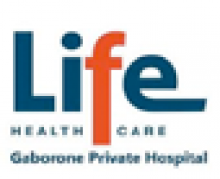Dehydration occurs when there is insufficient water in the body.
Summary
Dehydration occurs when there is insufficient water in the body. It is especially dangerous in infants and the elderly.
Dehydration can be caused by poor fluid intake or excessive water loss through strenuous activity, sweating, vomiting, diarrhoea or urination. The average adult needs 2, 5 litres of liquid every day.
Lethargy, dizziness, low blood pressure, dry mouth and chapped lips are signs of dehydration. Severe dehydration can cause organ failure and death. Fluid intake usually restores normal hydration but in more severe cases medical intervention is often necessary. Replacement of lost electrolytes along with water is also important.
What is dehydration?
- Dehydration occurs when the body is depleted of water.
- Essential bodily processes such as blood circulation, excretion by the kidneys and sweating cannot be maintained if there is drastic fluid loss. Cells will dry out and malfunction.
- Anyone can become dehydrated, but children and elderly people are at greater risk. Children's bodies have a higher percentage of water than those of adults, their metabolic rates are higher and they are at greater risk of infections that cause vomiting and diarrhoea. They also depend on others to give them food and water.
- Older people may have decreased thirst sensation, their kidneys may not work as efficiently or they may have neurological conditions such which make it difficult to convey their needs to a caregiver. Incontinence problems may also lead elderly people to limit their fluid intake.
- Sportspeople who take part in strenuous sporting activities are also at risk of dehydration, particularly in very hot conditions.
What causes dehydration?
- Dehydration can occur because of:
- Poor fluid intake
- Excessive fluid loss through vomiting, diarrhoea, sweating or urination.
- Vomiting and diarrhoea are the commonest causes, especially in children.
- Diabetes leads to excessive loss of fluids through the kidneys, and is also an important cause.
- In all these conditions, electrolytes (dissolved salts, especially sodium and potassium, essential for normal metabolic processes) are also lost in varying degrees, in addition to the water, and this further reduces the amount of water moving from the cells into the bloodstream.
What are the symptoms and signs of dehydration?
- Extreme thirst is always present in the early stages, and young children may show marked irritability. With severe dehydration there is increasing weakness and lethargy and the urge to drink may be lost.
- In children, dehydration can set in quickly. Signs of dehydration can be dry or chapped lips, dry mouth, restlessness and dry eyes. Signs of advanced dehydration in infants include weak pulse, shallow breathing and blue-tinged, cold skin.
- A simple method to assess if dehydration is present in children: gently pinch the skin on the side of the abdomen. On releasing, it should immediately return to normal. With dehydration, the skin fold takes much longer to return.
- Adults may feel dizziness and extreme thirst, and have heightened body temperature, although their skins may also feel cold to the touch. As a result of sodium and potassium loss, nausea and muscle cramps may occur. If the body continues to dehydrate, blood pressure will drop further, resulting in shock and damage to internal organs such as the liver, kidneys and brain.
First aid for dehydration
- Taking extra fluids by mouth is the obvious treatment for dehydration and the drinking of water or other liquids is recommended.
- A solution consisting of half a teaspoon of salt and eight teaspoons of sugar in a litre of clean water is suitable for mild cases of dehydration. Rehydration salts in packets are also available.
- Vomiting and diarrhoea can easily lead to dehydration, especially in the case of infants and older people. If someone's skin feels cold to the touch, they appear dizzy or disorientated, have chapped lips or a dry mouth and they have low blood pressure, they need immediate medical attention.
Preventing dehydration
- An adult loses about:
- 1, 2 - 1, 5 litres in fluid daily through urination
- 1 litre through perspiration.
- Approximately 2, 5 litres of fluid are therefore needed daily so that the body does not become dehydrated.
- Fluids taken in sufficient quantities will prevent dehydration.
- The correct treatment of diarrhoea, vomiting and conditions such as diabetes will prevent dehydration.
- Family members should be on the lookout for signs and symptoms of dehydration in relatives with diabetes.
- In the case of sportspeople taking part in strenuous sporting activities, rehydration should be a priority. Many balanced solutions containing the correct amounts of carbohydrate and electrolytes suitable for athletes are available commercially.









